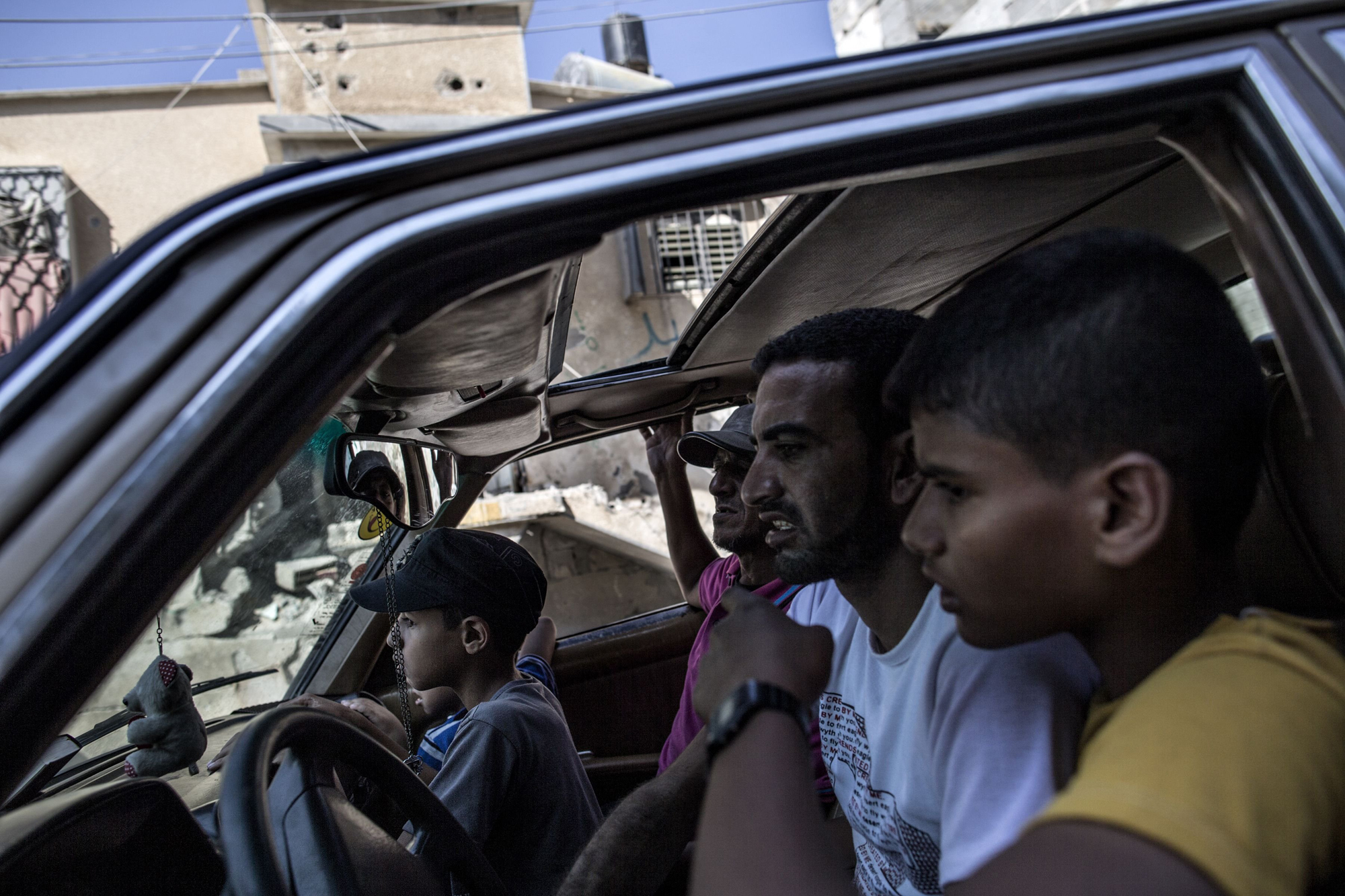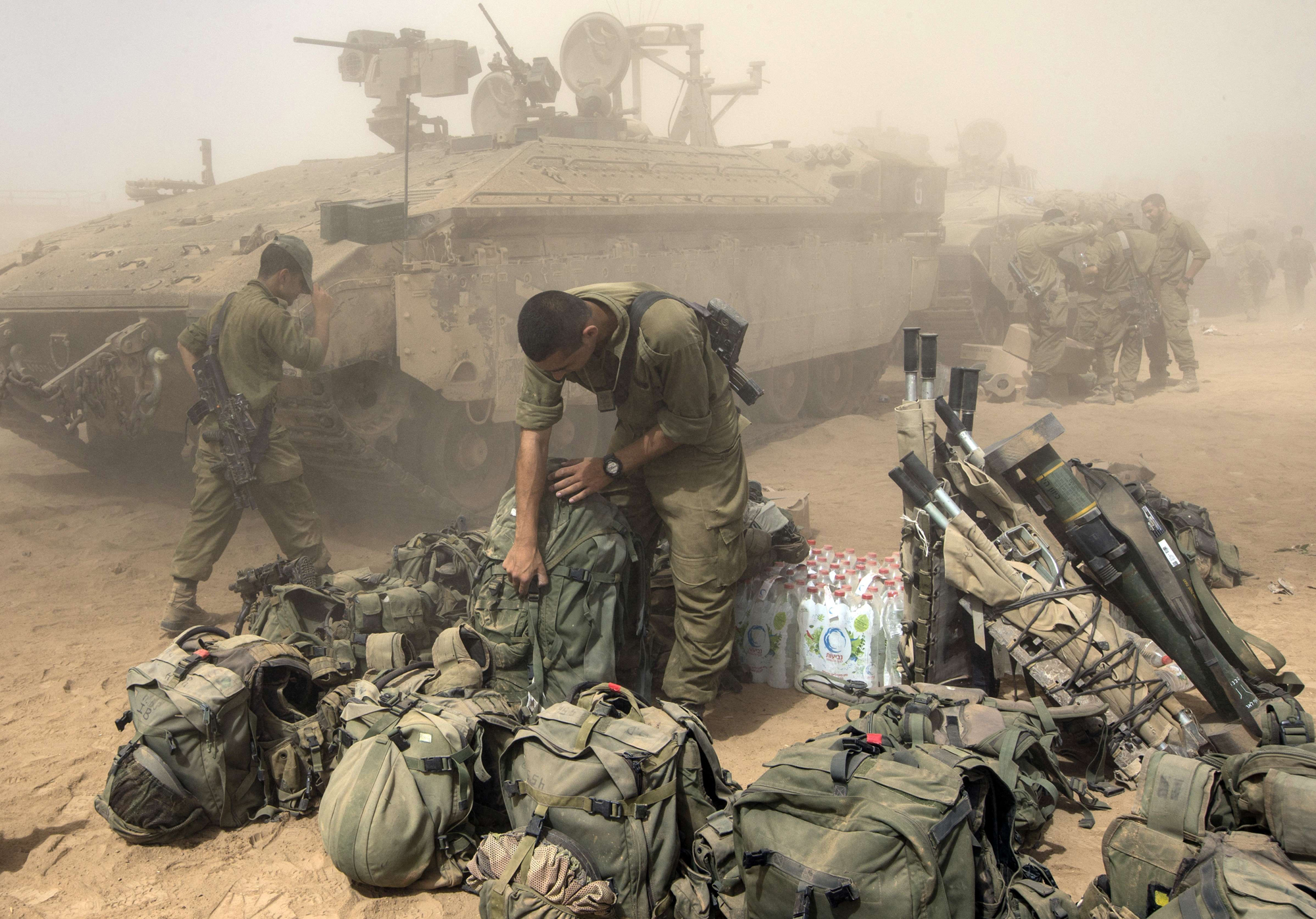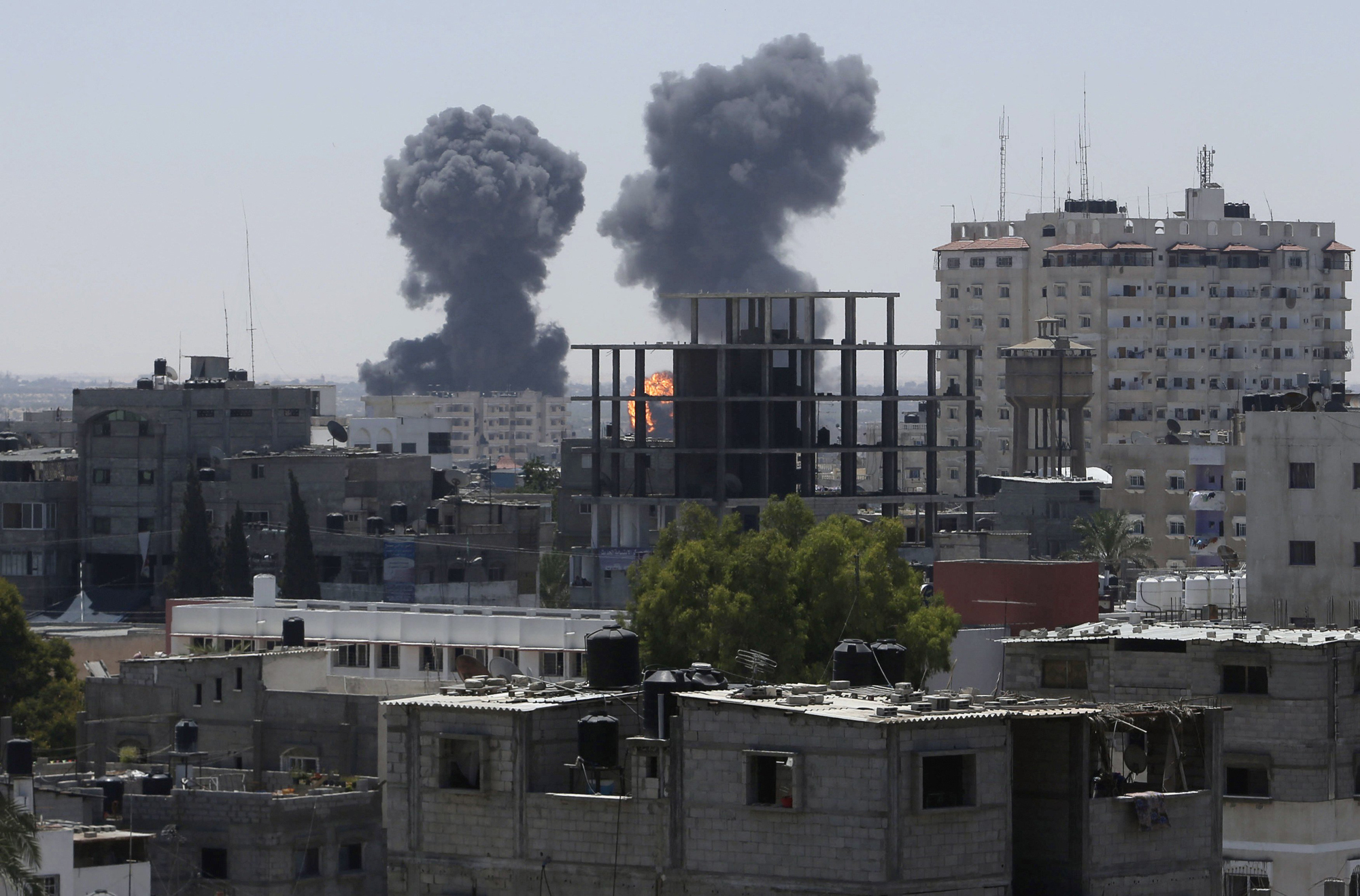
The optimists in this part of the world went to sleep last night feeling vaguely hopeful, or at least relieved. The pessimists woke up and said, “I told you so.”
The 72-hour cease-fire announced by the United Nations and United States around midnight Thursday local time was supposed to go into effect Friday morning at 8 a.m. About an hour and a half later, the Israeli military says, soldiers who were at work dismantling a tunnel in Khan Younis, in the southern part of the Gaza Strip, came under attack. Two Israeli Defense Forces soldiers were killed by a suicide bomber and one was captured.
Hamas, however, says the incident happened just before the cease-fire went into effect.
Israel named the soldier as 2nd Lt. Hadar Goldin, 23, of Kfar Saba, north of Tel Aviv, and soon after his name was released he became a Twitter hashtag as well as the subject of at least three Facebook pages calling for him to come home safely. It is exactly the kind of build-up that Hamas likely hopes for, as its stated goal is repeating the pattern it established when it secured the 2011 release of 1,026 Palestinian prisoners in exchange for one Israeli: Corporal Gilad Shalit, who was kidnapped in an June 2006 infiltration attack inside Israel.
The capture of an IDF soldier has been the event that Israel feared Hamas had been gunning for, knowing that Hamas sees soldiers as bargaining chips for more Palestinian prisoners and increased popularity. Over 5,000 Palestinians are held in Israeli jails, some having been convicted and others held as “administrative detainees.”
The brazen attack is by Israeli accounts the fourth time since this war started on July 8 that Hamas and other Palestinian militants groups in Gaza has broken or rejected a truce. The incident seems likely to open the doors for yet more intensive bombardments from the Israeli military — following the attack, the IDF pounded the area with artillery, killing 40 Palestinians.

The cease-fire violation and ensuing violence derailed plans for talks on a more prolonged peace, which were to be held in Cairo on Friday. But the Israeli soldier’s capture only underscores how differently the two sides see the ongoing conflict. Hamas political chief Khaled Mashal hailed the kidnapping of three Israeli teens in mid-June – even though it turns out that was executed by an independent cell of Hamas-inspired militants acting on their own. Hamas has tried capturing soldiers during other recent infiltration attacks as well — Israeli soldiers have found handcuffs, tranquilizers and syringes in captured militant tunnels.
But from Israel’s point of view, there’s little chance of an agreement to exchange prisoners for another captured soldier.
“We are in the middle of a war,” said Ephraim Kam, an expert in strategic intelligence at the Institute for National Security Studies at Tel Aviv University, as well as a retired IDF colonel. “I assume that Israel will continue as if it had not happened. I’m doubtful that we will repeat the exchange that happened with Gilad Shalit.”
Kam added that Israeli public opinion has particularly been colored on this issue by a recent incident of recidivism: a Hamas operative who was released as part of the Shalit deal was found by Israel to be responsible for shooting and killing an off-duty police officer in April.
“As a result, it will be much more difficult than ever before,” for Hamas to get the prisoners it expects to in exchange for one live soldier, Kam says.
Gershon Baskin is among those who helped forge a backchannel between Israel and Hamas to get the two sides to negotiate over Shalit’s release. Baskin, a peace activist and the co-founder of the Israel/Palestinian Center for Research and Information, maintains contacts in the political wing of Hamas. He tells TIME he communicated to Hamas three weeks ago his belief that the group would not be able to stage a repeat of the Shalit deal because too many factors had changed.
“I told them that the idea that Israel will negotiate and agree to a ratio of 1:1,000, that time is over and it won’t happen again,” Baskin said. “The scenario in which we already have 40,000 soldiers in Gaza and another 14,000 being called up tells me Israel isn’t leaving without the soldier, dead or alive.”
Baskin predicts that Israeli Prime Minister Benjamin Netanyahu’s cabinet, which will meet late Friday, may decide on a total conquest of the whole southern Gaza Strip around Rafah, both in search of the missing soldier and in looking for more tunnel entrances.
“Whatever happens, Hamas will win in their definition, because they have a different kind of rationale,” Baskin said.

Indeed, the Palestinian version of events is significantly different than the Israeli one. Not only did the soldier’s capture happen before the end of the cease-fire, some Palestinian leaders argue, but Hamas officials also accuse Israel of breaking the cease-fire first.
“There is no justification for Israel to violate the truce as the officer was captured and the two soldiers were killed ahead of the truce,” senior Hamas leader Moussa Abu Marzouq told the Anadolu News Agency, a Turkish newswire. Marzouq said the troops were only responding to “Israeli aggression.” In a press release, Hamas spokesman Sami Abu Zuhri said Israel made the claim of Hamas violating the cease-fire to “cover up a massacre” in Rafah.
It was never clear exactly how the cease-fire agreement would stick for three days even while Israeli troops are operating in Gaza. Netanyahu said Israel would work at destroying tunnels with or without a cease-fire, and the truce indicated that Israeli forces would stay in Gaza but not attack Palestinians. Israel read this as permission to continue destroying tunnels. However, Hamas says it treats any Israelis efforts against infrastructure as an act of aggression and would, in the words of Hamas spokesman Osama Hamdan speaking in Beirut, act accordingly in self-defense, according to Israeli radio.
Hamdan also said that he has no knowledge of a captured soldier, possibly pointing to an old pattern that has been noted by Hamas observers before: a gap between what the political wing says and what the military wing does.
More Must-Reads From TIME
- The 100 Most Influential People of 2024
- Coco Gauff Is Playing for Herself Now
- Scenes From Pro-Palestinian Encampments Across U.S. Universities
- 6 Compliments That Land Every Time
- If You're Dating Right Now , You're Brave: Column
- The AI That Could Heal a Divided Internet
- Fallout Is a Brilliant Model for the Future of Video Game Adaptations
- Want Weekly Recs on What to Watch, Read, and More? Sign Up for Worth Your Time
Contact us at letters@time.com